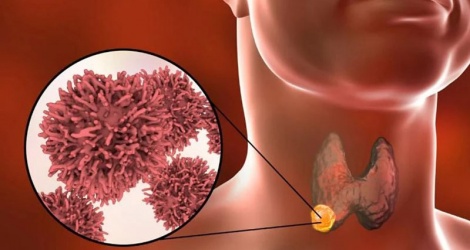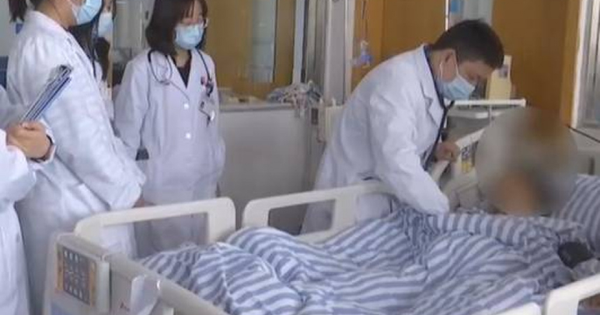There is currently no sudden increase in the number of cases recorded in the same period last year, with the main agents being influenza A/H3N2, A/H1N1 and influenza B.
There is currently no sudden increase in the number of cases recorded in the same period last year, with the main agents being influenza A/H3N2, A/H1N1 and influenza B.
Faced with the reality of severe flu cases being hospitalized, this afternoon, February 8, the Ministry of Health said that although the number of flu cases has increased locally since the end of 2024 and during the Lunar New Year holiday in 2025, there has been no sudden increase compared to the number of cases recorded in the same period of previous years.
 |
| Flu patients are being treated at medical facilities. |
The main agents causing influenza in Vietnam are currently influenza virus strains A/H3N2, A/H1N1 and influenza B. "There has been no recorded change in the virulence of the influenza virus," said an infectious disease expert.
Currently in the winter and spring weather period with monsoon climate conditions, humidity, favorable for respiratory pathogens to develop, leading to an increased risk of infections such as seasonal flu, measles, and rash fever.
In addition, this is also the first festival season of the year, the demand for trade and tourism increases; there are often large gatherings at tourist, entertainment and public places, increasing the risk of infection.
Influenza A is also known as seasonal flu. It is an acute respiratory infection caused by influenza A viruses. Common strains of influenza A viruses include A/H5N1, A/H1N1, A/H3N2, A/H7N9. In particular, strains A/H7N9 and A/H5N1 often exist in poultry and have the ability to spread to humans, thereby leading to epidemics.
According to Dr. Ngo Chi Cuong, Deputy Director of Professional Affairs, Head of Internal Medicine Department, Medlatec General Hospital, although most cases of influenza A infection are usually quite mild, there will also be particularly dangerous situations, even causing death.
“Many people are subjective when they get the flu, thinking it is just a mild illness and do not go to the doctor early. However, for people with weakened immune systems, the flu can cause dangerous complications, causing serious damage to the body,” the expert added.
Influenza A can cause typical complications such as pneumonia. This condition is common in high-risk groups such as children, people over 65 years old, or people with chronic diseases such as heart failure, diabetes, chronic obstructive pulmonary disease, cirrhosis, etc.
In addition, influenza A can also cause secondary infections (otitis media, purulent sinusitis), myocarditis, bacteremia, and fungemia.
For pregnant women, influenza A can easily lead to complications such as severe pneumonia and fetal distress, miscarriage, stillbirth, premature birth, etc.
At present, respiratory diseases are at risk of outbreak, including influenza. In fact, many people are subjective when they get the flu, thinking it is a mild illness so they do not go to the doctor.
Many people even have the habit of “acting as their own doctor”, buying medicine for treatment. When the disease progresses severely, the newly hospitalized patient has already suffered many dangerous complications, even in a state of multiple organ failure, with a difficult prognosis for treatment.
Dr. Cuong emphasized that although seasonal flu is often considered a mild illness, if the following two signs appear, the patient needs to go to a medical facility immediately: Respiratory failure (rapid breathing, shallow breathing, difficulty breathing, respiratory muscle contraction, cyanosis); spO2 drops below 93% (low blood oxygen saturation can lead to acute respiratory failure).
In addition, people with underlying diseases such as asthma, COPD, diabetes, and cardiovascular disease are at higher risk of complications and need special close monitoring.
In addition, experts recommend effective disease prevention measures that people need to apply, such as getting a flu vaccine, following personal hygiene habits, keeping their homes, offices, and schools clean, and limiting contact with sources of infection.
In particular, people should absolutely not use drugs on their own, especially antiviral drugs like Tamiflu, but must follow the doctor's instructions. If there are signs of suspected flu, people should proactively go for medical examination to detect promptly and apply effective treatment measures.
The Ministry of Health today sent an official dispatch to the People's Committees of provinces and cities requesting to strengthen the prevention and control of flu, measles and respiratory diseases.
The Ministry of Health requests that the People's Committees of provinces and cities direct the health departments and relevant units to thoroughly implement the Prime Minister's direction in Official Dispatch No. 116/CD-TTg dated November 14, 2024 and effectively organize vaccination against measles.
Direct the work of ensuring funding and mobilizing the participation of local authorities at all levels, departments, branches and organizations to synchronously, promptly and effectively deploy epidemic prevention and control measures, especially the implementation of the measles vaccination plan in the area.
At the same time, review the vaccination subjects to organize catch-up vaccinations and catch-up vaccinations for those who have not been vaccinated or have not received enough doses of measles vaccine; continue to maintain and increase the vaccination rate of vaccines in the Expanded Immunization Program, ensuring disease prevention immunity for children.
The Ministry of Health also requested provinces and cities to closely monitor the situation of infectious diseases in the area, especially influenza, measles and acute respiratory diseases, severe viral pneumonia syndrome; proactively monitor and pay attention to monitoring.
Focus on early detection of suspected cases at medical facilities, educational institutions, industrial clusters and zones... ensuring logistics, funding, drugs, vaccines, equipment, and human resources to meet the requirements for treatment and prevention of infectious diseases.
Source: https://baodautu.vn/khong-co-su-gia-tang-dot-bien-ca-benh-cum-d244887.html



























































Comment (0)